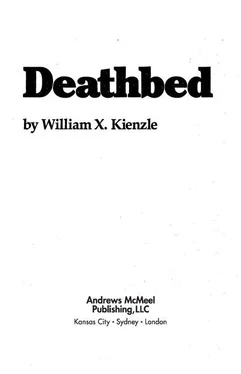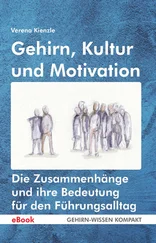Briefly, as they picked at their salads, Ķoesler explained his substitute status at the hospital.
As they conversed, they became the center of attention. This was entirely due to Koznicki’s presence. Not that he was a celebrity; he shunned publicity. It was his size. He was a larger person in actuality as well as in bearing, creating the impression of being larger than life.
“So, Father, you are learning something new after all these years in the priesthood?”
“Well, yes. In a way. Ministering to the ill on a day-to-day basis is a lot different from visiting with them only occasionally as one does in a parish. Some of the clichés have to fall by the wayside when the person you’re visiting is no better today than he was yesterday—maybe worse. It’s different, it’s rewarding . . . but it has also been draining. I don’t know how people are able to do this as a career. But my hat’s off to them.”
“This is indeed a most important apostolate—to the sick.”
“That’s right. You don’t see very many ill people, do you, Inspector? They’re usually dead.”
Koznicki smiled. “A bit of an oversimplification, Father. But, yes, most of my ‘clients’ are either dead or they are suspects. On the other hand, not all of your clients recover. Death plays a significant part in your work here too.”
“You may not know the half of it, Inspector. Here, nobody dies alone.”
“How is that?”
“If a chaplain is not with the patient when he or she dies, the chaplain will be along in a minute to try to comfort the survivors.”
“I was not aware of that. At each death a chaplain is required?”
“Yes. It reminds me of what in effect is a second-class monsignor. It’s been so long since we had a new monsignor named in the Archdiocese of Detroit that I’m not sure what the protocol is now. But there used to be two ranks. One had the title for life and was called a Right Reverend Monsignor. The other was a Very Reverend Monsignor and remained a monsignor only as long as the contemporary Pope lived. When the Pope died, the Very Reverend Monsignor ceased being a prelate. They used to call them shirttail monsignors. I was never clear whether the sobriquet came from the type of their ecclesiastical garb or because they were, in effect, hanging on to the Pope’s shirttail.
“In any case, a bunch of us always thought it was rather consoling that no Pope ever died alone. As he drew his last breath, a whole bunch of prelates around the world were ceasing to be monsignors.
“And so it is in the hospital. Nobody dies alone. Always, in the wings at least, there’s a chaplain.”
“Leave it to you, Father, to find an ecclesiastical analogy for just about everything.” Koznicki chuckled. “As a matter of fact, the chaplain is not the only nonmedical person who may be found with the dead and dying at this hospital.”
“Oh?”
“I have no way of knowing whether you have noticed it, but frequently there will be a police officer present.”
Koesler scratched his head. “Now that you mention it . . .”
“Some of our investigations begin right here in the hospital. In the emergency room.”
“Of course they would. A fatal knifing or shooting would end up as a homicide investigation. As a matter of fact, we almost had one for you the other night.”
“You mean one of the staff?”
“The Chief Executive Officer.”
“Sister Eileen? What happened?”
Koesler recounted the story of the patient’s attack on Eileen. “Of course no one was seriously hurt and since the assailant was a mental patient, the hospital handled it internally and the police weren’t called. But if it hadn’t been for that alert guard, Sister might have been seriously hurt or even killed.”
“Any place these days can be dangerous,” Koznicki commented. “But a hospital with its mental patients, and many other patients disoriented, has always been a dangerous place to one degree or another. It was fortunate for Sister Eileen that, as you say, the guard was alert. To be perfectly frank, Father, it surprises me more than somewhat that the security guard was that effectual. At least judging by its reputation, the security service at this hospital is not all that reliable.”
“That’s not very encouraging. Especially since I have the feeling that Sister Eileen may indeed be in some danger. And not just from unbalanced patients.”
“Why do you say that, Father?”
“Actually, I shouldn’t say anything. There is no hard evidence that something’s wrong. It’s just a feeling. Don’t pay any attention to me, Inspector.”
But Inspector Koznicki had far too much respect for Father Koesler’s intuition to discount a matter about which the priest felt strongly. “No, Father, go on. Tell me what you think may be happening.”
“Well, that’s just it: Nothing is happening. It’s just that I can’t get rid of this feeling something is about to happen. It’s like a dormant volcano that is rumbling: It may erupt; it may not.”
“It has to do with Sister Eileen?”
“Well, yes. From some things I’ve been told and from what I’ve observed, there are a few people on this staff—I really have no idea how many—whose positions would be vastly improved if either this hospital closed or something happened to Eileen. Or both, since Eileen and St. Vincent’s seem to be, in some sense, synonymous.”
“Who might these people be, Father?”
“This is just between the two of us?”
“Of course.”
“There’s a Korean doctor, Lee Kim, who apparently has been playing fast and loose with hospital policy. Eileen has threatened to dismiss him from the staff. That seems to be kind of imminent. Evidently a dismissal from this institution would cripple his medical career. For the hospital to close, or for something to happen to Sister Eileen before any action were taken in his case, would be extremely helpful to him, to say the least.
“Then there’s John Haroldson, the chief operating officer. He’s at the age of compulsory retirement. And, while Eileen could waive that requirement, reportedly she will not do so. Haroldson lives for this place. But if Sister Eileen remains here for the foreseeable future, he’ll be gone.
“And Sister Rosamunda. She is well beyond retirement age. She’s still here because Eileen has waived the requirement in her case. But according to today’s scuttlebutt, Eileen will do so no more. Something to do with Rosamunda’s waning efficiency and also a bit of a drinking problem. Rosie, as nearly everybody calls her, is terrified of being tucked away in some home for ancient nuns. But if Eileen is still here and healthy at the end of this month, Sister Rosamunda will be forced into retirement.
“On top of that, rumor has it that some nurse’s aide is going to be canned if she happens to break just one more thing in this hospital. And the poor girl apparently can’t put on her shoes without breaking a lace. I mention her not as a particularly strong suspect—for what? . . . nothing’s happened yet—but just to indicate the underlying threat of something that might befall Sister Eileen.
“And finally, there is Dr. Fred Scott, who has been a source for much of what I’ve just told you. He seems to be the ‘good guy’ in this drama. But I’ve never been completely comfortable with his having taken me into his confidence so completely and so soon after my arrival here. It’s sort of a case of Dr. Scott’s having protested too much.
“And there you have it, Inspector—for what it’s worth. And it isn’t worth very much. Sort of a scenario without a play. Or a murder without either a crime or a corpus delicti.”
The Inspector did not reply immediately. When he did, he spoke slowly as if choosing his words carefully. “May I suggest, Father, that perhaps our past professional association—your involvement in some, shall we say ‘lurid’ murder investigations—has sensitized your perception to a degree where you have come to see a prospective homicide around every corner?”
Читать дальше












